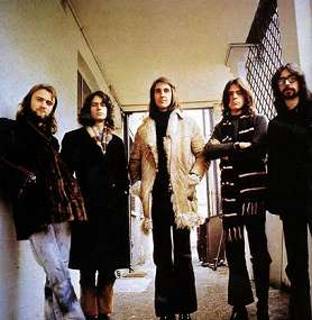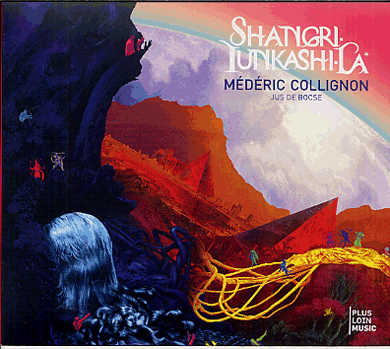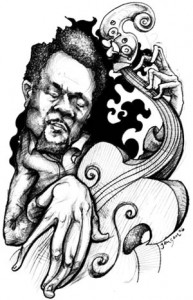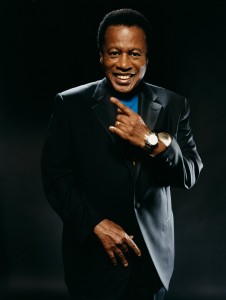
Let’s not worry about ‘prog-rock’ for a minute. I’ve no real beef with the label. Labels can be helpful, they can even be necessary. Certainly ‘jam band’ is a label. But if you’ve decided to use a label (and I am talking about you), then it’s absolutely essential to realize the infinite variety that can exist within any grouping that may share a single characteristic. There’s a lot of different kinds of prog out there. There’s a lot of different kinds of jam bands too.
So, with all that out of the way, let’s get to the topic du jour – Genesis. Here’s an easy one, an absolute, something you can hang your hat on, unchanging, objective reality. Gabriel-era Genesis was not a jam band.
Many other popular bands from 1970 through 1975 conducted sonic explorations that happened right before the audience’s very eyes. They threw caution to the wind and ventured into the world of improvisation where anything could happen. And such behavior was not limited to the Grateful Dead and the Allman Brothers, although those are two fine examples from the era. Even real prog bands would strip themselves naked of any script or predictability and just see what happened – King Crimson is a perfect example.
As Miles Davis was bringing elements of rock into jazz, bands that improvised were really bringing elements of jazz into rock. Zappa would use his entire ensemble (and sometimes an audience) as an instrument and conduct noise to tell the story or make the point. In the earliest parts of this period, Syd Barret-era Pink Floyd experimented with music/noise to match their groundbreaking visual show.
One of the most important aspects of improvised music is the relationship (or lack thereof) between the players. Ideally, great improvisation happens when the group all know one another so well that they can basically read each others’ minds. The result is that classic moment of the whole becoming a unit that is greater than the sum of its parts. Its a cliche, but in this case, it is true.
On the other hand, jams can become much more interesting by the presence of a destabilizing influence. The great example of this is Miles Davis in 1970. He spent a lot of time and did a lot of touring with band that consisted of himself on trumpet, Gary Bartz on sax, Michael Henderson on bass, Keith Jarrett on keys, Jack DeJohnette on drums and Airto on percussion. Although the band had a strong improvised element, the whole thing was beautifully thrown off one night when John McLaughlin joined on electric guitar. Everyone was thrown out of their comfort zone and the thing got even better.
So, once again, Gabriel-era Genesis was not a jam band. They composed together for five glorious years (all writing credits were always given to all five members) and their goal upon going in front of an audience was to recreate, as much as possible, the sound on the record. But with all that talent, all that original thinking, all those fancy toys, and all that affinity from years of playing, recording and touring together, I have always wondered, what would it have sounded like if THIS band jammed? What if they just started with some very basic ideas, musical germs, and noodled a bit and jammed and worked on making something from nothing? What would that sound like?
And now I know what it would sound like and it is a beautiful noise. And, in the very near future, I look forward to sharing it with you over at Blogerantz.
 I came across this gifted artist quite randomly, and yet he has a shocking affinity for some of my favorite music ever recorded. Time has been kind to Miles Davis’ electric period (1969-1975), even though that body of work was not well thought of upon release. During my college career (1990-1994), that era of music became the most important signpost on a musical journey that continues to this day. What I learned from listing to ‘In a Silent Way’, ‘Jack Johnson’ and ‘Dark Magus’ shaped the person I have become, both musically and otherwise. I still routinely return to those and other recordings and find more undiscovered nuance of melody, rhythm and groove.
I came across this gifted artist quite randomly, and yet he has a shocking affinity for some of my favorite music ever recorded. Time has been kind to Miles Davis’ electric period (1969-1975), even though that body of work was not well thought of upon release. During my college career (1990-1994), that era of music became the most important signpost on a musical journey that continues to this day. What I learned from listing to ‘In a Silent Way’, ‘Jack Johnson’ and ‘Dark Magus’ shaped the person I have become, both musically and otherwise. I still routinely return to those and other recordings and find more undiscovered nuance of melody, rhythm and groove.




